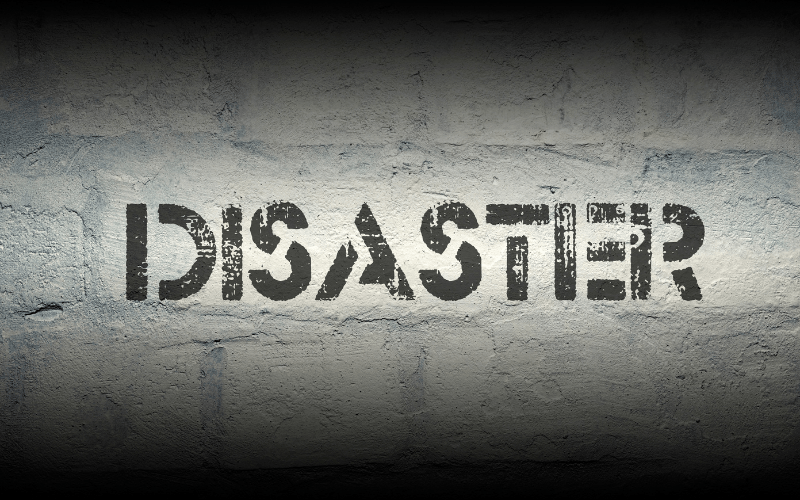Why Your EMDR Therapist Brand Matters
By Kim Howard, CAE
“Absorb what is useful, reject what is useless, add what is specifically your own.” – Bruce Lee
What is the first thing you do when you hear about a professional EMDR colleague and want more information? Usually, you go to your search engine of choice and type in that person’s name or type in that person’s name and EMDR, EMDR therapy, or whatever other area of expertise this person might have. When you do, what do you usually find? Do you find their website, or are they listed only in association directories? Or do you find them listed with another company or training organization? 
If you don’t find that person’s website, how do you find out more? You might find details from our Find an EMDR Therapist Directory if that person is a member. Still, the information supplied is only as detailed as the EMDRIA member submits in their directory profile. Worse yet, you might only find that person listed as a trainer, presenter/speaker on someone else’s website. This colleague’s brand is now associated with someone else’s brand. Their name – their brand – no longer belongs to them in cyberspace. I can’t tell you how often I search for people in the private practice EMDR therapy space only to find that they do not have a website. How can we change that?
What Is Branding?
According to the American Marketing Association, a brand is a name, term, design, symbol, or any other feature that identifies one seller’s good or service as distinct from those of other sellers. Branding comes from the root word brand, meaning to mark and determine ownership. Ranching is an excellent example of why branding matters. When cowboys brand their livestock, others know who they belong to if they escape or sell the livestock in the marketplace. Their brand is likely associated with the ranch’s perception, the owners, the cowboys/staff, and the quality of livestock. Corporations like Apple, Coca-Cola, Ford, and The Ritz Hotels conjure images of their products and the experience you have purchasing, drinking, driving, or staying at their brand. It makes you feel a certain way. They have all distinguished themselves in their marketplaces. There is nothing wrong with private practice EMDR therapists distinguishing themselves in this marketplace.
How Do I Create My Brand?
In my 25+ year career working with association volunteers, I tell authors or podcast guests that I get the best content from those who are experts at or passionate about their subject matter. I have successfully used this approach with hundreds of volunteers to help the associations I worked at create award-winning content. What are you an expert in? What practice areas of therapy or populations do you enjoy working with more? What do you want to be known for? What part of your therapy practice gets you jazzed? Once you make that decision, you can forge ahead with how you will brand yourself in the marketplace. Make no mistake: therapy is a marketplace. Not only are your colleagues looking you up, but so are your potential clients. If you were searching for a therapist specializing in aging populations, you would expect to see that information on their website. You may also want to know if the therapist you are considering has working expertise with BIPOC clients. Let readers who visit your website know what you consider your practice areas of expertise.
Why Does It Matter that I Have a Website?
A website matters because it helps people understand you as an authentic private practitioner. It creates brand integrity, showcases your niche, and allows people to find you. Building a website without hiring a professional is much less cumbersome than it used to be. WordPress has allowed non-coding developers to put together a website fairly quickly. Communities like Fiverr, Toptal, Guru, and Upwork, offer thousands of freelance expertise tips in areas you likely need help to create. Need a logo? They have graphic designers. Need a freelancer to write your website content or help with your website? They have you covered. Need a proofreader? They have experts there, too. Sites like Shutterstock, iStock, Getty Images, and others offer free or inexpensive stock photos. Websites like Canva, Pixelied, and BeFunky offer you the chance to design work yourself if you are creative, have the time, and wish to explore that option.
Here’s a recent example of why your website and its content matter. I searched for a podcast guest to discuss OCD for an upcoming episode. After looking in our Online Community and our Find an EMDR Therapist Directory, I started looking at those select members’ websites. If their website did not mention OCD as expertise, I bypassed them. Why? Because they didn’t have that expertise listed on their website. How many potential clients have passed you by because they either could not find your website to find out more about your practice approach or you did not list their mental health issue or diagnosis as a specialty area? What if you want to establish yourself as a speaker or an author? Readers need to know you.
What Is SEO and Why Does It Matter?
SEO stands for search engine optimization. It’s how people find you online. Search engines find keywords from your website through crawlers, and having the right keywords improves your visibility when someone searches for you or your area of expertise. If you want to know more about SEO, here’s one article from MOZ.com that explains it in detail. This page also discusses keywords, which are vital to improving your website’s SEO. You can use keywords for your name, profession, areas of expertise, location, and populations served. The list can be almost endless.
Should I Link My Website to Organizations Where I Am a Member?
In a word, yes. Most likely, your membership organizations have been established for decades. Their web presence ranks in the top five positions or on page one in various search engines if they are smart about their online presence. They have done the hard SEO and keyword work. Linking your website to its home page or a therapist directory page helps improve your search engine findings. Potential clients and organizations who want you to speak, present, or author something want to know if you keep up with what is happening in your profession. Connecting to your membership organizations tells the reader that you keep up your professional education. While most organizations won’t let you use their logo (like EMDRIA), they don’t mind if you link to their website because it helps them and you. Backlinks are what the web gurus call them, and it’s healthy for both of your sites.
How to Work with Freelancers
You may wish to consider a freelancer to help with building your website or writing your website copy. If you have not worked with freelancers, they are usually individuals who offer their services to you on an hourly, daily, or project-based basis. Gig workers is a newer term that the media has been reporting on for the last few years if you recognize that term. These people are not employees. You should receive a W-9 form from them for tax purposes for you both. Freelancers will either offer you an hourly price, estimate how many hours the job will take, or a flat project-based fee. Always get more than one bid to ensure their estimates align with what the market will bear. Three is generally a good number for freelancers or vendors to start with getting proposals. As someone who spent some years freelancing, I preferred to work with clients who knew what they wanted from me with a clear scope of work and deadlines that we both agreed upon. Be aware that scope creep does happen. So, as long as you are cognizant and communicate with your freelancers when you ask for something beyond the initial scope, you can rework the scope to include any new work. Or start a new project with them. Be available to provide feedback or information that your freelance team or vendors you hire will need. Be honest with them: if you are unhappy, articulate why. If you love it, tell them that, too.
Personal branding in the EMDR therapy profession matters as much as in other professions. Your website does not need to be extensive, but it does need to let the reader know who you are.
Kim Howard, CAE, is the director of communications and marketing for EMDRIA. She has garnered 99 awards during her association publishing career, including two for her blog posts.
Back to Focal Point Blog Homepage
Additional Resources
If you are a therapist interested in the EMDR training:
- Learn more about EMDR at the EMDRIA Library
- Learn more about EMDR Training
- Search for an EMDR Training Provider
- Check out our EMDR Training FAQ
If you are EMDR trained:
- Check out EMDRIA’s Let’s Talk EMDR Podcast
- Check out the EMDRIA blog, Focal Point
- Learn more about EMDRIA membership
- Search for Continuing Education opportunities
If you are an EMDRIA Member:
Date
October 14, 2022
Creator(s)
Kim Howard
Practice & Methods
Your EMDR Practice





